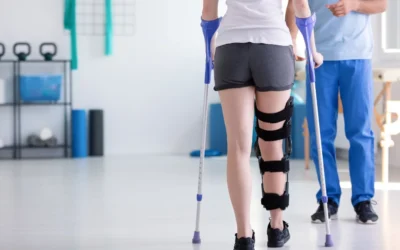If you’ve recently been in a car accident and are dealing with neck pain, stiffness, or dizziness, you might be suffering from whiplash. These symptoms can be painful, scary, and disorienting and it’s completely normal to feel unsure about what to do next. One of the most common questions people ask in this situation is: “Can I sue for whiplash in Florida?”
The short answer is: Yes, you can sue for whiplash in Florida but there are some important legal and medical factors to understand first. This guide will help you make sense of your options, whether you’re the injured person or someone trying to support a loved one.
What Is Whiplash?
Whiplash is a soft tissue injury that occurs when the head suddenly jerks forward and back, typically during rear-end collisions. While it might sound minor, whiplash can lead to serious and lasting pain, headaches, and even psychological effects like anxiety or sleep issues.
Symptoms may not appear immediately, so it’s essential to pay attention to your body and seek care as soon as something feels off.
Florida’s No-Fault Insurance System: What It Means for You
Florida follows a no-fault insurance system. This means:
- After most car accidents, you’ll first turn to your own Personal Injury Protection (PIP) insurance to cover medical expenses and lost wages regardless of who caused the crash.
- PIP typically covers up to $10,000 in medical and disability benefits.
But what happens when your injuries, like whiplash, are more serious or your expenses go beyond what PIP covers?
When You Can Sue for Whiplash in Florida
Under Florida law, you can file a personal injury lawsuit if your injuries meet what’s called the “serious injury threshold.” This includes:
- Significant or permanent loss of a bodily function
- Permanent injury within a reasonable degree of medical probability
- Significant and permanent scarring or disfigurement
- Death
In some cases, whiplash injuries can qualify under this threshold, especially if they lead to chronic pain, limit your ability to work, or impact your quality of life long-term.
You may be able to sue if:
- Your whiplash injury was caused by another driver’s negligence
- Your injury is well-documented by medical professionals
- The cost of your treatment and recovery exceeds your PIP coverage
- Your injury meets the serious injury threshold
Steps to Take After a Whiplash Injury in Florida
1. Seek Medical Attention Immediately
Even if you feel “okay,” symptoms can take hours or even days to appear. Early medical documentation is essential for both your health and any potential claim.
Helpful Tip: Be honest about all symptoms, even if they seem small. Dizziness, headaches, or muscle tension matter.
2. Notify Your Insurance Company
Inform your insurer about the accident and your injuries. This is required under PIP laws, and delays can hurt your case.
3. Document Everything
Keep a record of:
- Medical visits and diagnoses
- Symptoms and pain levels
- Missed work or daily activity limitations
- Any expenses related to your injury
4. Consult a Florida Personal Injury Attorney
A licensed attorney can help you determine whether your injury qualifies for a lawsuit. They’ll also help you navigate insurance negotiations and make sure your rights are protected.
You’re Not Alone Help Is Available
If you’re feeling overwhelmed or unsure about your next steps, that’s completely normal. Whiplash can affect more than just your neck, it can disrupt your daily life, cause emotional distress, and create financial strain. But there’s help available.
Hurt Aid connects you with trusted Florida medical providers and licensed personal injury attorneys who understand what you’re going through and are ready to support you without pressure or promises.
Whether you need medical treatment, legal advice, or just someone to listen, you don’t have to figure this out alone.
Next Steps
✔ Get checked out by a medical provider right away even if symptoms are mild.
✔ Start a record of your symptoms, expenses, and medical visits.
✔ Reach out through Hurt Aid to connect with a Florida attorney who can evaluate your case and explain your options clearly.
You don’t need to make any big decisions today but knowing your rights is a strong first step toward healing.





